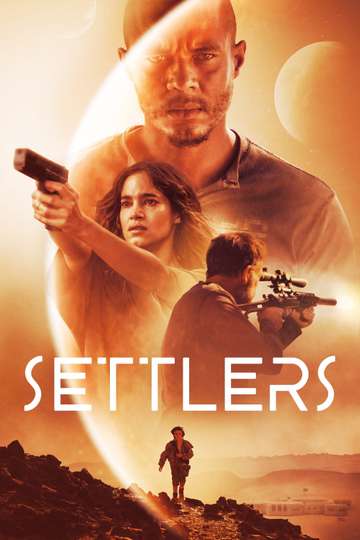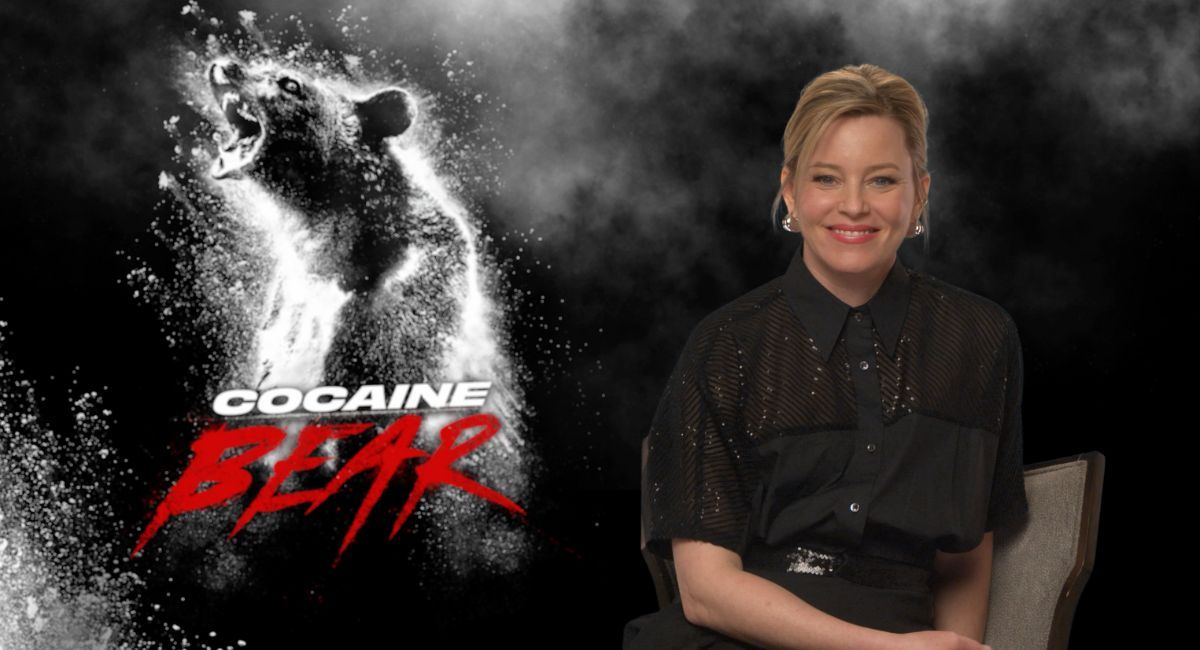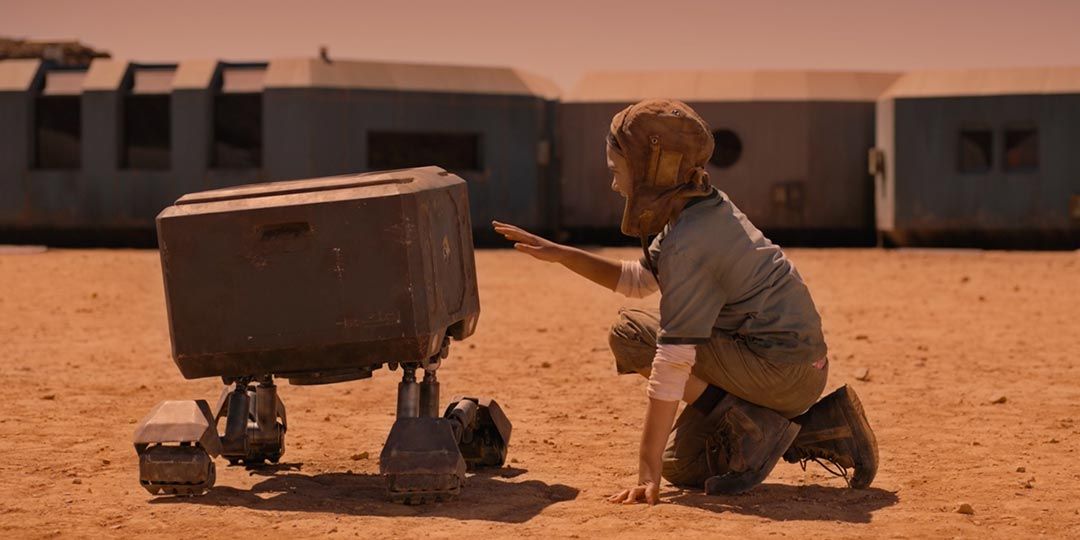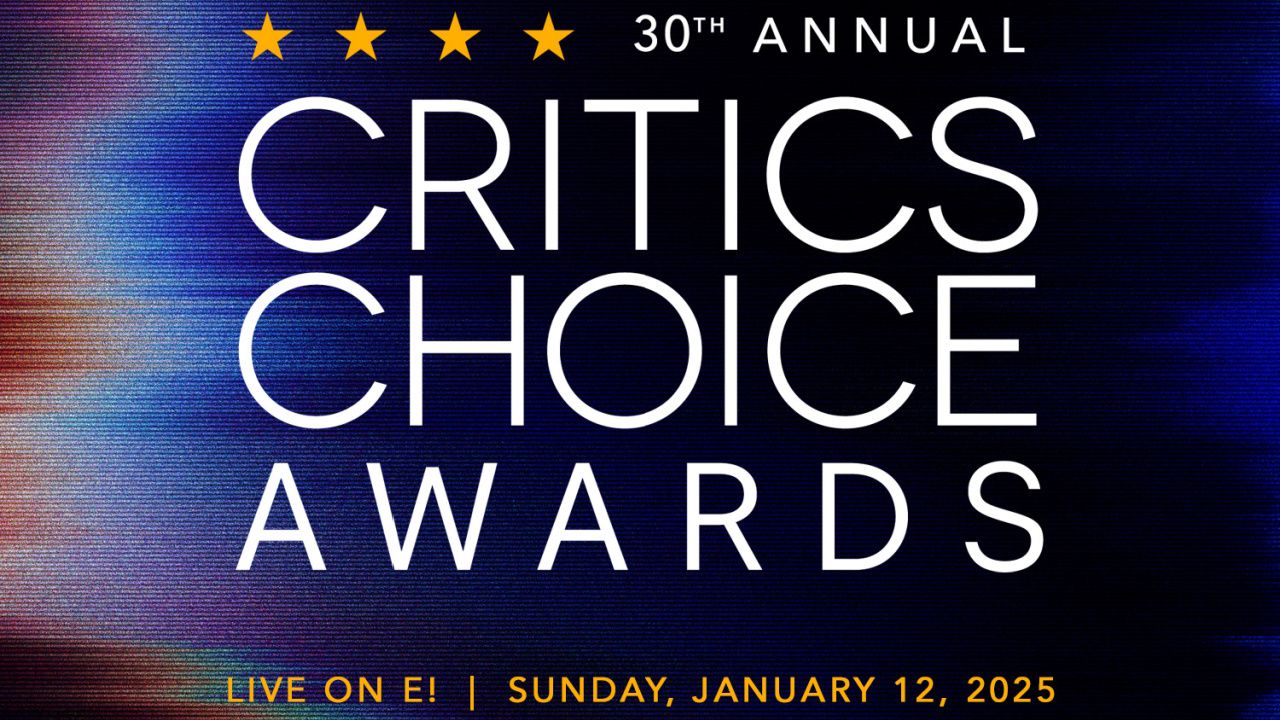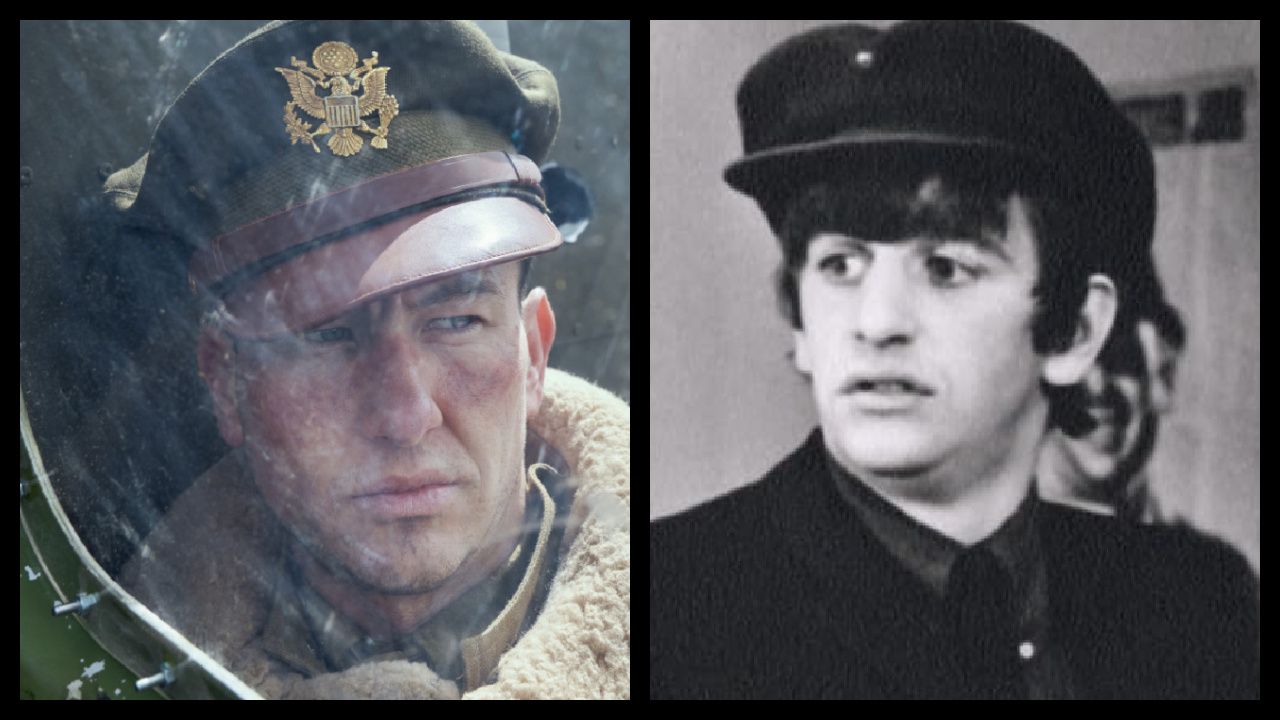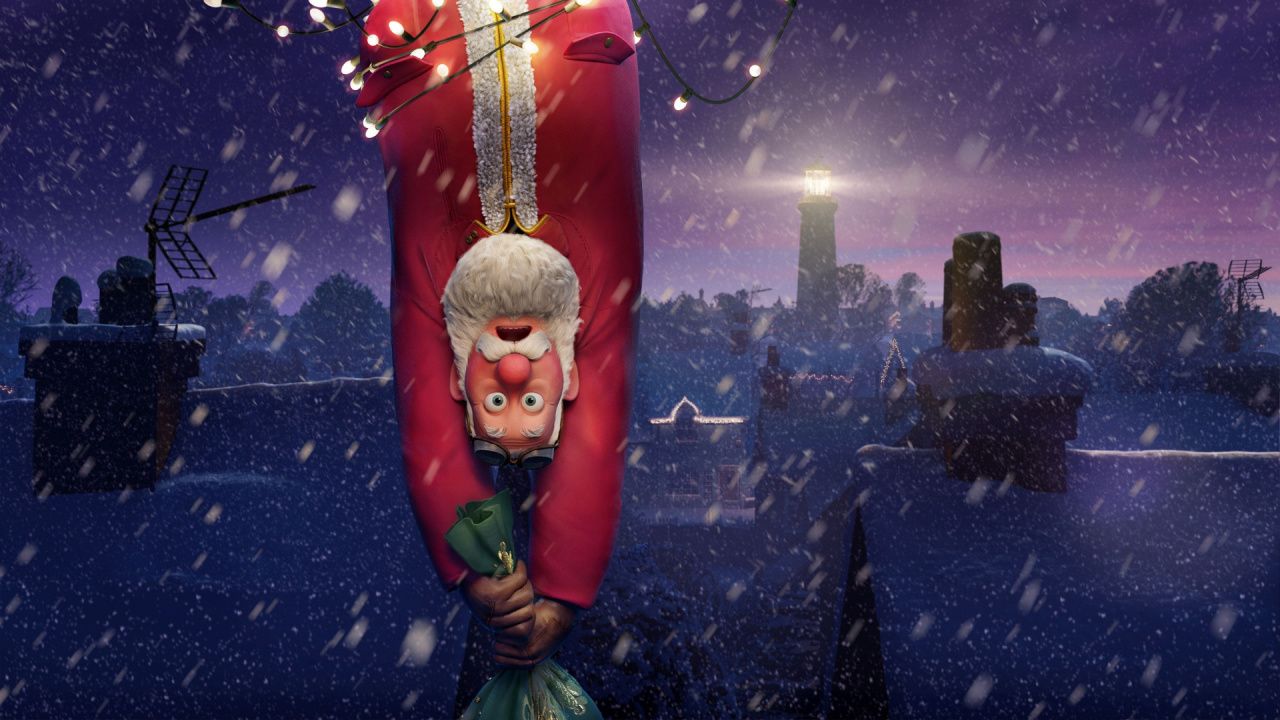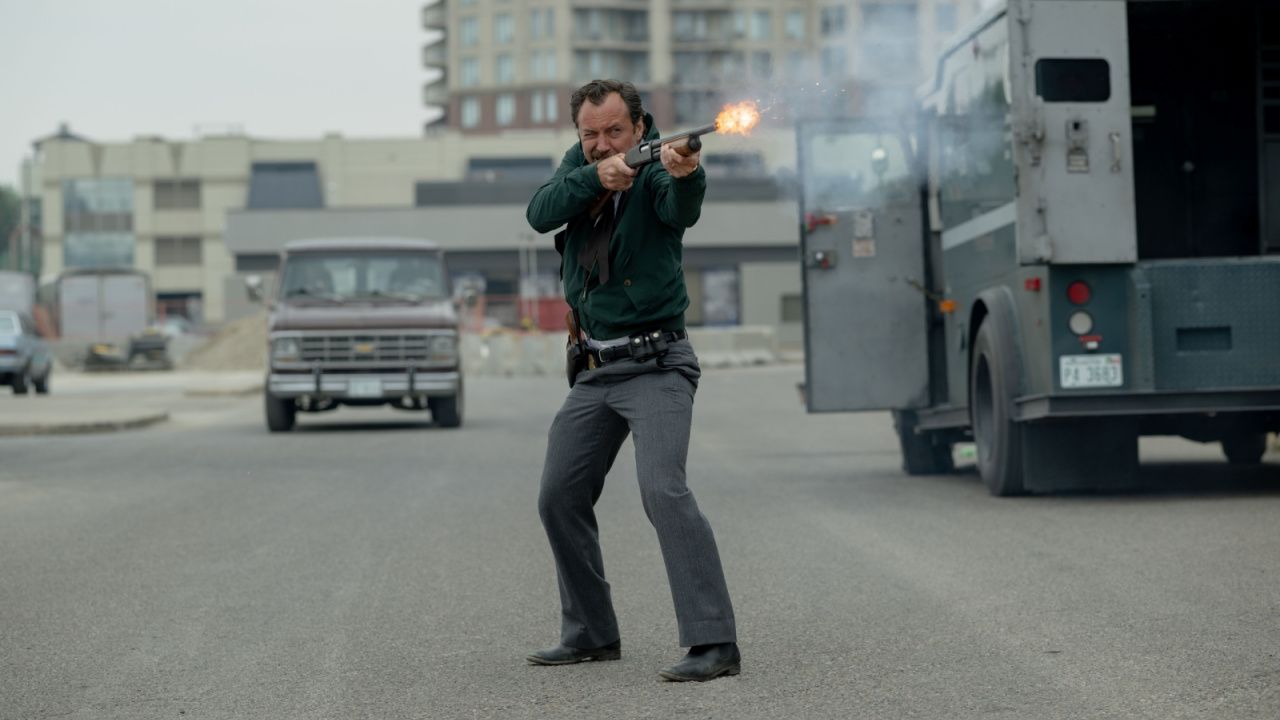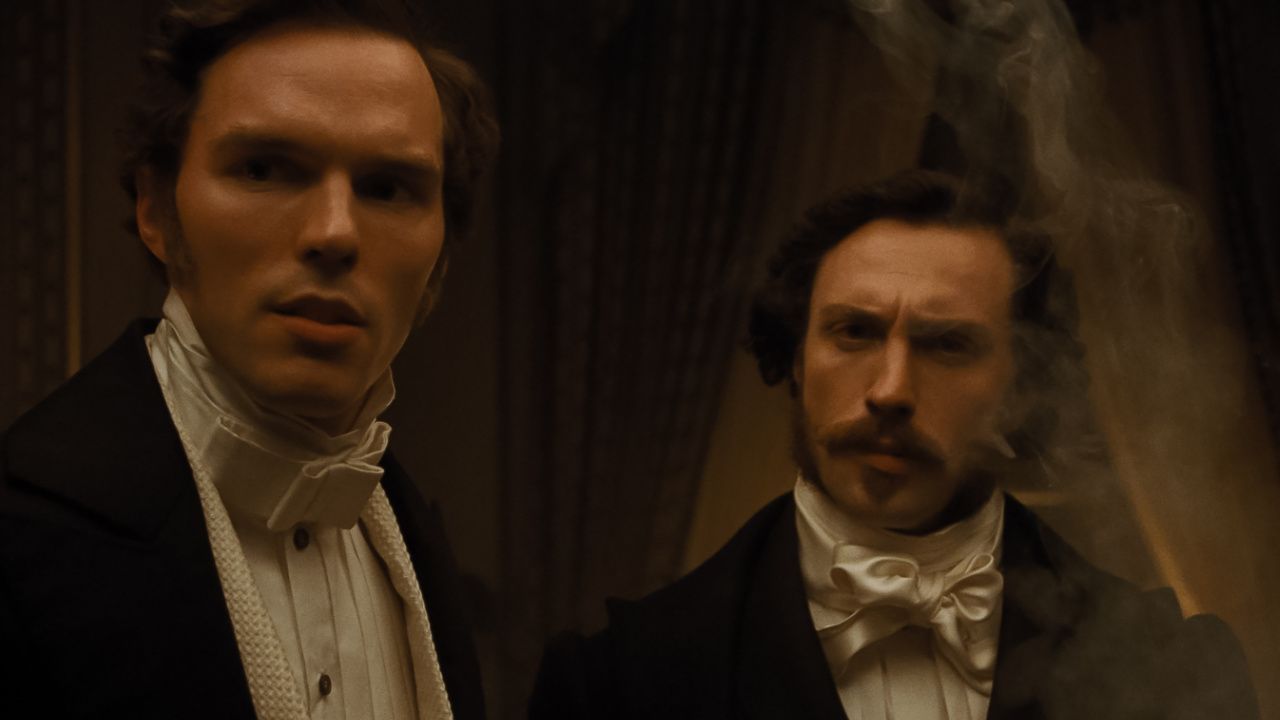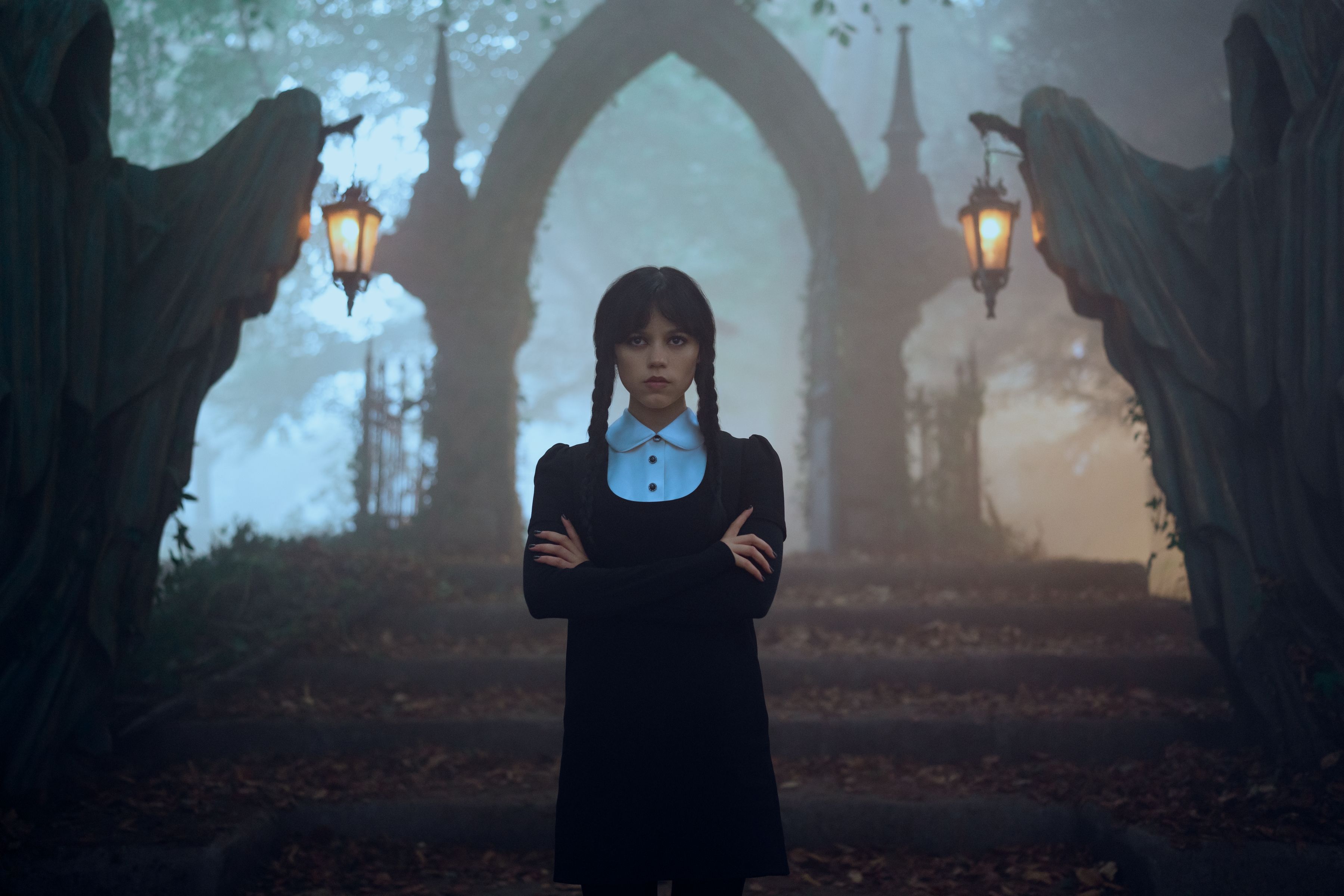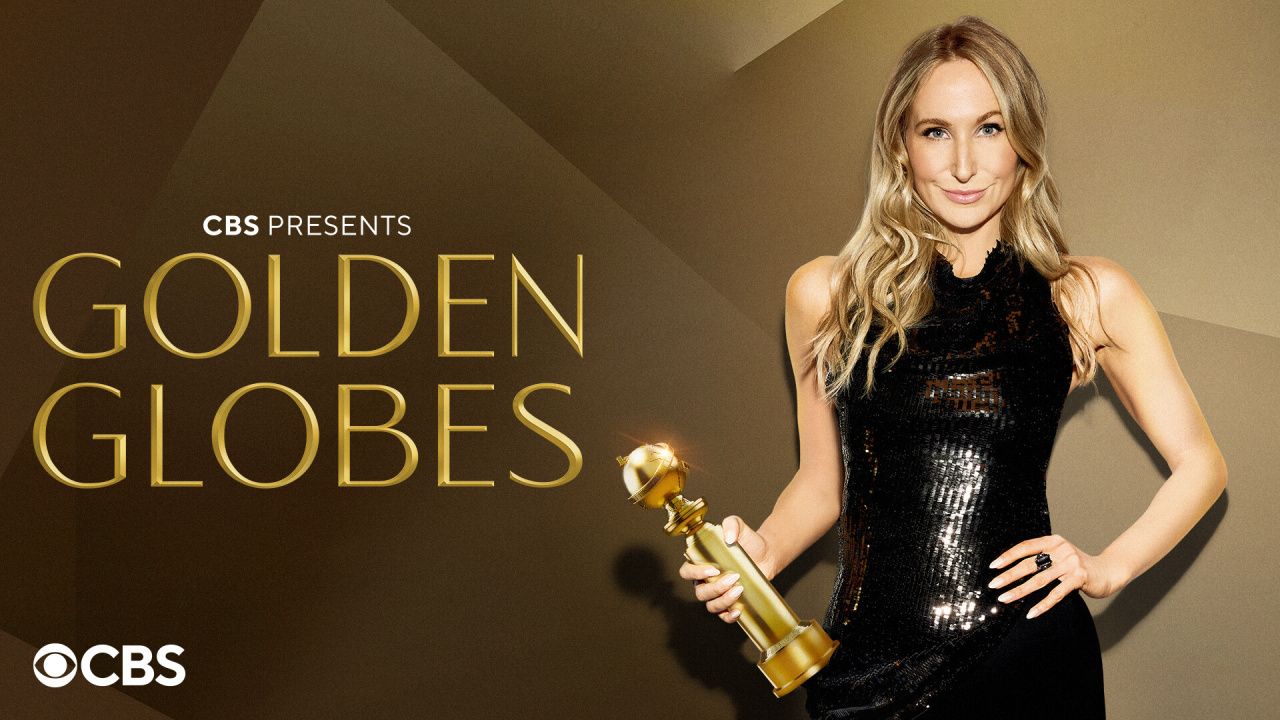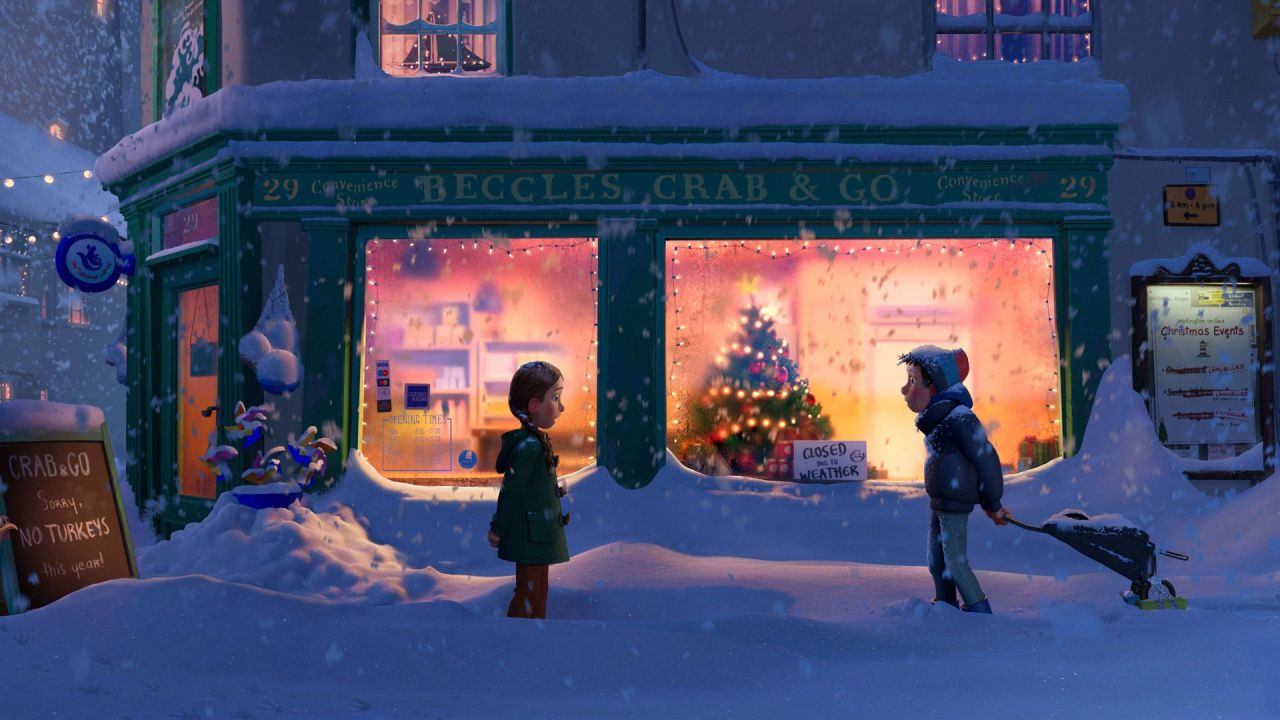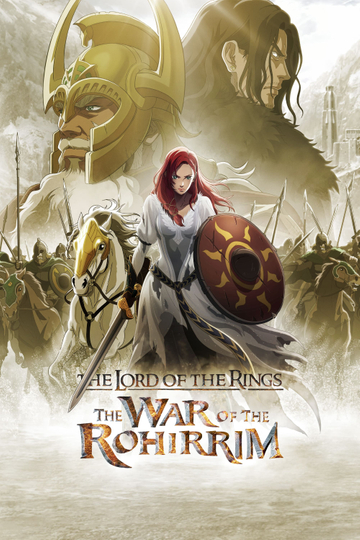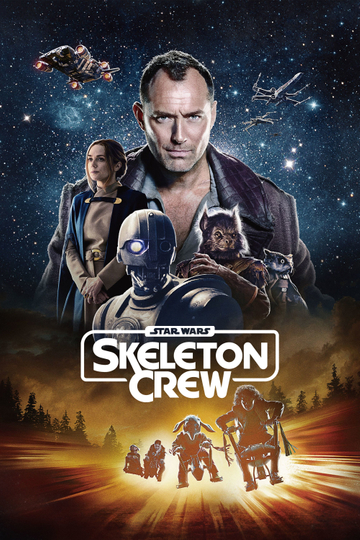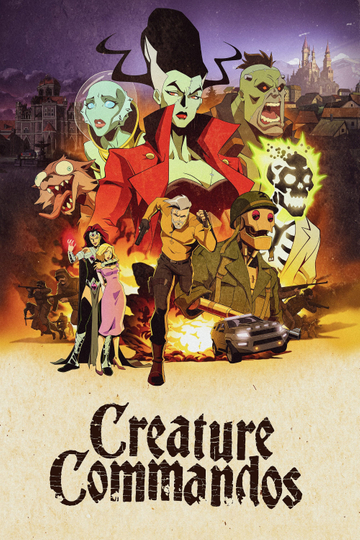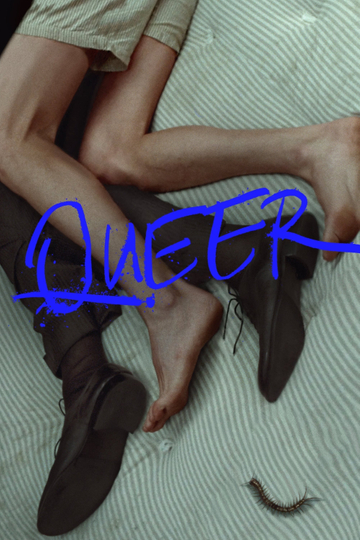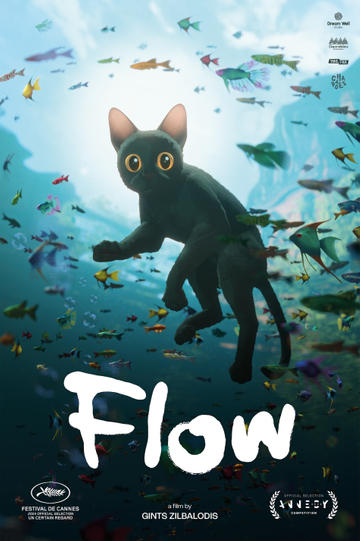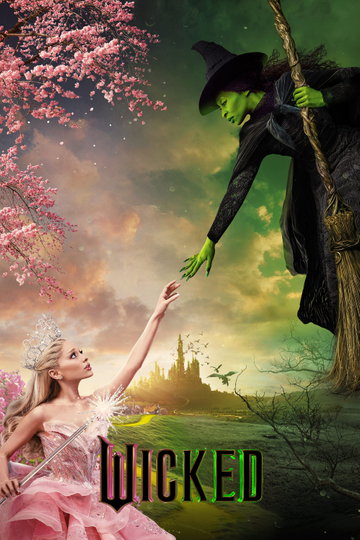‘Settlers’ star Sofia Boutella talks about making the new science fiction drama
Boutella talks about shooting in South Africa, and how she connected with her character Ilsa.
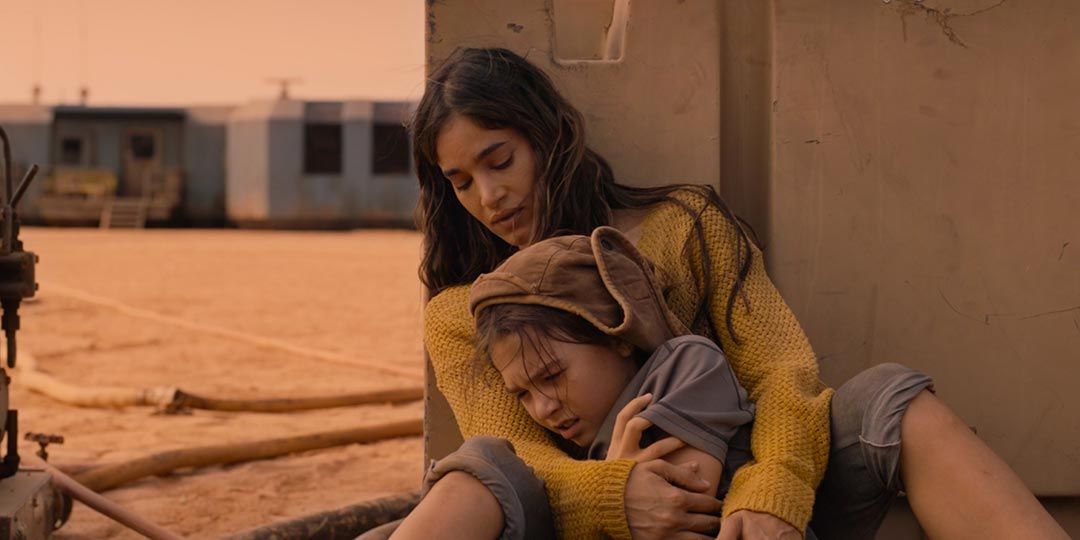
Sofia Boutella and Brooklyn Prince in 'Settlers'
In the new movie ‘Settlers,’ Sofia Boutella (Atomic Blonde, Climax) plays Ilsa, a homesteader on Mars, working with her husband and daughter to keep their settlement viable. But a stranger appears, who says that the land is rightly his. Thus begins a complicated, dramatic story about settlers, immigrants, and what sacrifices people may make to stay alive. Boutella recently talked to us about the new movie.
Moviefone: You've picked some interesting projects in the last few years, like ‘Fahrenheit 451’ and ‘Climax’ and ‘Atomic Blonde.’ What goes into choosing a project for you?
Sofia Boutella: Honestly, it's a project at a time, right now I'm being sent projects and I read them enough, and I do fall in love with the character and the circumstances, the relationships. And so far, I can say that I've been very lucky and blessed with very interesting projects with characters that are rich and interesting to play, and I've just had a blast so far.
MF: What was interesting to you about Ilsa? This feels like an immigrant story to a certain extent.
Boutella: Yeah. And in a way, I could relate to her trajectory and her story very much, being an immigrant from Algeria. And an immigrant twice, I moved to France when I was 10 years old, from Algeria because of the civil war. So it was not just a hopeful move. It was just a move. I mean, it was hopeful, but it was not out of wanting something else because we just wanted, it's just like, we didn't have much choice and Algeria was in a terrible state at the time. And I was lucky enough to have a family that could move me out of there. That could leave because not all families could go.
And then I left because I wanted something else, and when I was 23, when I moved to LA. So Ilsa is facing something that is very powerful and something that we can, sort of, in a way anticipate nowadays considering the environmental backdrop that we are living in and the one that they are probably coming from, in Settlers that Ilsa, her husband and her daughter are living in.
And I think that, yeah, it's very similar to the situation that we're facing now, if we keep going this way,
MF: Where did you shoot the movie? I read that it was South Africa, but it really does look like you're on Mars.
Boutella: Yeah. It's South Africa in the Northern part on the West Coast. I mean not the West Coast, but in the west side and the border of Namibia, and we were in a town called Vioolsdift, that's how you say it, fuels drift. And we were very isolated. It was in a way, an environment that scene, it felt hostile. And the set that we had was entirely practical, which was a dream for us actors to, sort of, how to play this character, that in real life, I mean, their circumstances are isolated on their own and in this very, very quiet environment. That's how we lived while we were there.
MF: On screen, Brooklyn Prince seems like she's got such an old soul. Is she like that on set?
Boutella: She's entirely this way. She is very mature for her age. She is very aware of the circumstances of these characters, her character very much, and the other characters. So aware of the dynamic that me and her had to have and understood sort of why Ilsa is in a way hard on her and sort of, not even if you can see and tell that she is maternal and nurturing, but that she has sort of an edge. And because she is so overworked by having to raise this child in this environment that is not, sort of, favorable, but that's the only choice she has. But Brooklyn was very much aware of that, and she's such a good actress, and she also remains a kid when it's time. But then once she goes to where she turns it on, and she had the other dimension about her, she's very, very good. Yeah.
MF: With your history in dance, what's the crossover as a performer for you, between dance and acting and are there some of the same tools that you're using?
Boutella: When I used to dance, from the teachers that I've had and the training that I've had, I've always sort of interpreted circumstances and characters, and I'd never done it without sort of knowing where I came from emotionally. And that is what dance is to me, in my whole career and how I was trained, it was always dancing from that place of interpreting something that is deeper than what meets the eyes of just dance steps and counts and use music. It could also be that, but that's not where I come from in terms of either my training and the teacher that I've worked with and the project that I've been on, even when later on, I went on tour with Madonna, maybe Nike was more about the dancing, but everything else that I did was very much about the depth of it.
And so when I moved into acting, it was same, it was portraying, working from that same place minus certain aspect which has dance movement, but then still, you still have to find the physicality of your character and how your character moves and work with their bodies. Every single character that I've had, I've found a walk or something to do with my body to make them different.
MF: It's a rare treat for us to get to see you play guitar and sing. Had you already played guitar? Is that you really playing there on screen?
Boutella: Yeah. It's me. Yeah. I play a little bit. I like to play the ukulele. I play a little bit of guitar. It was fun to learn this piece of music, I think is beautiful or the composer of the film who's lovely and so talented. I love what he does. But my father is a composer, and so I grew up in a house where everybody played music, and it was sort of in way natural, even if it's not my job, but it was fun to do that.
MF: You mentioned being out on location. How long were you out there?
Boutella: We were there, in September, that would be two years ago. I think that we were there for two months, I believe.
MF: That's a long time to be remote like that.
Boutella: Yeah. It's a long time, but it's what's necessary in order to make this movie happen, and it's good to have that sort of time. It's very enjoyable. I love working on these kinds of movies that sort of embrace the time that it needs in order to be executed the best possible way. And also to understand, sort of, our characters have been on Mars for quite some time now. And I think it's good to just feel that longevity, in a way it was very helpful.
MF: What was the rehearsal and preparation like for this? Were you talking to Jonny Lee Miller? I imagine you're obviously talking to your director, but how much time do you spend on your prep work before you start shooting?
Boutella: Well, from the moment that you say yes to the project until your first day of filming, there's constant work that is happening depending on what you're doing before that. But before I flew there, I was already, I like to personally come to a set on something, having broken down the whole script. And then I did talk a lot with Wyatt [Rockaway, the director] and coming both of us to an understanding. There was something initially that was written about Ilsa, the way she was written was in a way very, very, like she seems that she was holding some sort of secret, and she's very, in a way there's something quite dark about her. And I think developing that secret was very interesting with Wyatt is to understand how a mother, when she's very protective and wants something more for her daughter having come from a place like Earth that is beautiful, that was beautiful, that had so much hope.
And she sort of in a way coming from that place of having had broken dreams and having had, she hoped for more, but where they landed was not very hopeful for her daughter. So she is very much protecting her from that truth. And coming to that understanding was why having at first I read, and I found her very, even though I liked the story, I didn't at first agree or understand right away the sort of darkness and complexity that she came from. And talking with Wyatt made complete sense because I've had to face it to me personally with members of my family, this sort of same dynamic, but it doesn't mean that your mother doesn't love you unconditionally. And I think that's why I really love ‘Settlers’ is that it's complicated, it's emotionally complicated, but it's very human.
And I think what I love the most about is that everybody would love... I mean, I don't think whether you like the movie or not, everybody would be left with some sort of moral questions, what they would do in certain situation. And I truly appreciate movies, me as an audience, that made me question my own morals. And this movie really does that on so many aspects. So many aspects, the environmental backdrop, this sexual social dynamic that is going on between them, the political aspect, and what's going on right now on earth, the environment. And like all of it, I think, is being questioned in it. And the audience will need to, will get a chance to do that for themselves.
MF: This movie gives the audience hints about the rest of the world, but not much more than hints. Because what's going on, on Earth and what the war's about, none of that is really all that important to the story. Even when Ilsa tells Jerry about his parents, the information is fairly sparse. Did you work out with Wyatt that you're not necessarily going to answer every question?
Boutella: Yeah. I love that. I love when you don't spoon-feed your audience, when you don't infantilize your audience and you sort of consider them as, thinking, intelligent being that can come up with an understanding. When we meet people every day, we don't have justification or understanding to why they are the way they are. And that's how you enter this film from the get-go, you are questioning what they're about, what they're like, what they must have come from, and sort of Ilsa saying that little detail about having killed Jerry's father, is very sort of telling to a lot of her. Why she killed the other stranger when she was protecting her child and where she must've come from. And even in that conversation, she couldn't say even more than what she comes from, but I think it's more interesting if you feel it from the character, as opposed to being told or shown what it was, and you can see it on the other person's face the other actors face or that own character's face.
‘Settlers’ is now in theaters and on demand.
